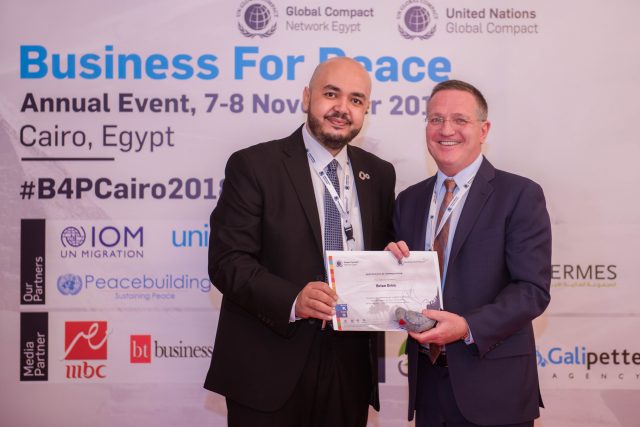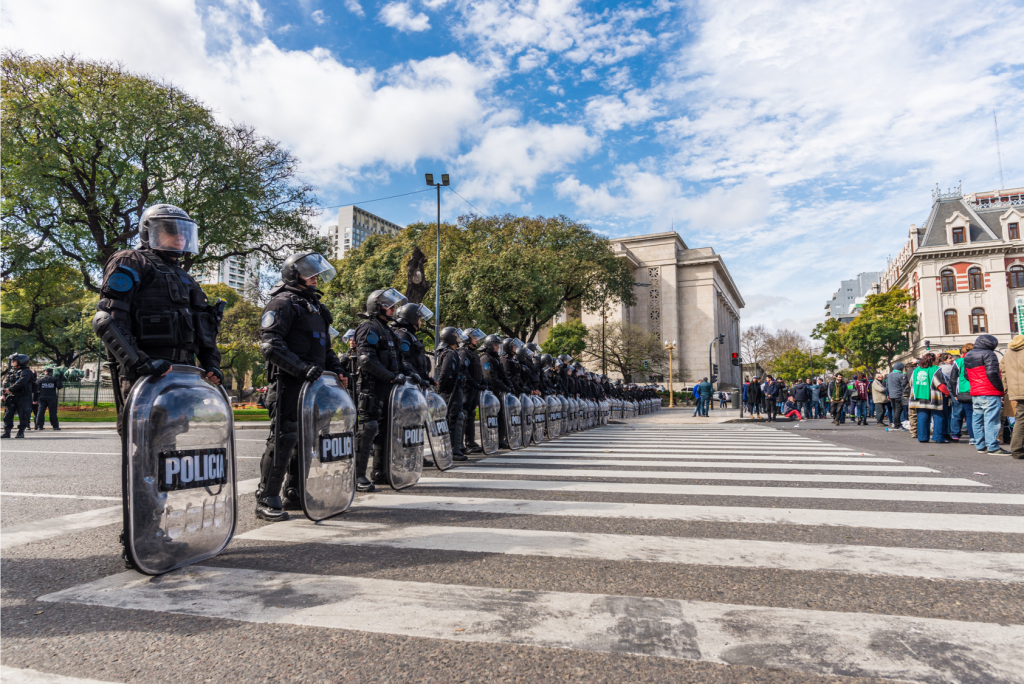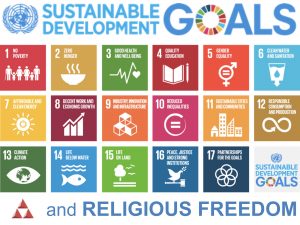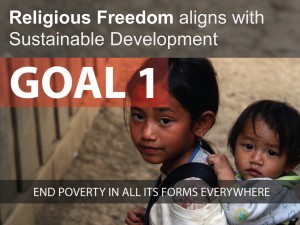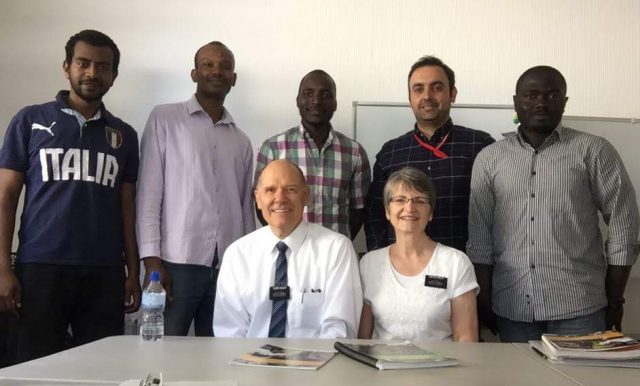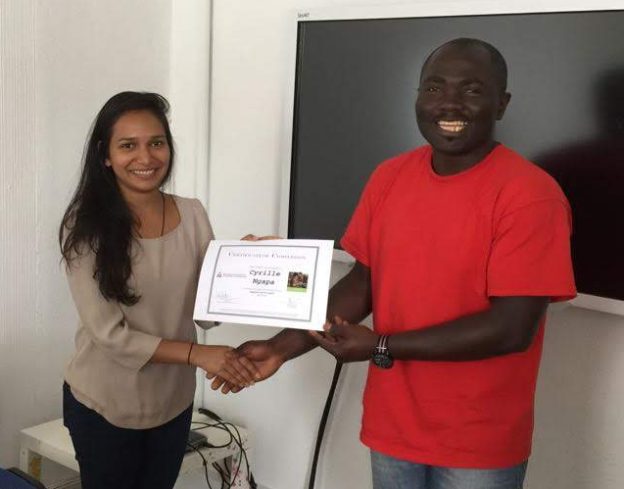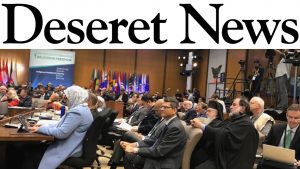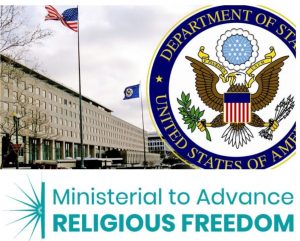
High level panel of CEOs will discuss how faith within the business sector makes for a more human economy
Business is a powerful force for improving the lives of people around the world. And many business people are motivated by faith. They view life holistically, where what they do from Monday to Friday flows from their religious convictions. Such holism can impact not only their ethics but also their priorities and practice.
This multi-faith panel of business leaders will discuss the practical challenges at the intersection of religion and business, the difficulties they face as people of faith who also have to make a profit, and ways business and religious leaders can work together to strengthen human rights, sustainable development and reach the most vulnerable in our communities.
Location: Sheraton Buenos Aires Hotel and Convention Center, San Martín 1225/1275. 16:30-17:45.
Panelists
- – Brian Grim (chair), President, Religious Freedom and Business Foundation, USA
- – Mohamed Amersi, Founder & CEO of Emergent Telecom Ventures; Head of the Amersi Foundation
- – Roberto Murchison, CEO, Grupo Murchison, Argentina.
- – Juan Vaquer, President, Asociación Cristiana de Dirigentes de Empresa (ACDE), Argentina.
- – Eduardo Elsztain (invited), Chairman, IRSA Inversiones y Representaciones; Vice President, World Jewish Congress, Argentina.
Bios
Brian Grim (PhD, Penn State) is the leading academic expert on the economic impact of religion and religious freedom. Brian is the founding president of the Religious Freedom & Business Foundation, but, more interestingly, he is the personification of the film character played by Tom Hanks, “Forrest Gump,” who was everywhere at just the right time. Deng Xiaoping, the Paramount leader of the People’s Republic of China, approved Grim’s proposal to build a faith-based graduate school in the largest Muslim region of China on 8/8/88, a significant date to the Chinese. Then in November 1989, Grim walked through the Berlin Wall the day it fell. He was there as the Soviet Union dissolved – right in his office building – in what was then the Kazakh Soviet Socialist Republic, and at the request of new (and current) President Nazarbaev, helped turn the Communist Party Training School in the country’s first free market management institute. Later, during the terrorist attacks of 9/11, Grim was an academic coordinator at the military academy of the United Arab Emirates. And in 2008, the Saudi Arabian Ministry of Hajj considered him the definitive source on the number of Muslims in the world. And after being neighbors with Barak Obama on Capitol Hill, the United States Senate used his research on religious freedom and the economy to pass unanimously a bipartisan amendment incorporating respect for religious freedom into its policy on international trade. More recently, he had meetings at the Vatican the day Pope Benedict resigned in 2013 and was soon pictured with Pope Francis, not to mention other world leaders as diverse as former British Prime Minister Tony Blair, current Canadian Prime Minister Justin Trudeau, and outgoing United Nations Secretary-General Ban Ki-moon. These Forrest Gump experiences make Grim a participant in our world’s key political, social, religious, and economic dynamics.
Mohamed Amersi is the Founder and CEO of Emergent Telecom Ventures, a consulting, advisory and asset management firm specializing in telecoms, media and technology. His non-profit, Amersi Foundation supports charities in education, poverty, conflict and religion in Africa, Middle East and Asia. More recently Mohamed launched the Inclusive Ventures Group, a social impact investing platform that has invested in education, livelihood, health and waste management in Africa and Asia. Mohamed is a fellow of Brasenose College, University of Oxford, a trustee of Prince’s Trust International, a member of the Development Board of the British Academy, a member of the Governing Council of the Royal Agricultural University, a member of the Global Leadership Council of the Said Business School, University of Oxford, and a trustee of the Satyarthi Foundation, Rose Castle Foundation, and Reboot the Future.
Roberto Murchison is CEO of Grupo Murchison, dedicated to port and logistic activities in Argentina. He is the President of Terminal Zárate, Vice-President of Murcan, and managing director of Murchison Uruguay. He is also the President of Cámara de Puertos Privados y Comerciales (CPPC). He is an industrial engineer educated at Instituto Tecnológico de Buenos Aires (ITBA) and holds a Master’s in Business Administration from the Sloan School of Management of the Massachusetts Institute of Technology (MIT – Boston, USA). Murchison is on the advisory board of Asociación Cristiana de Direigentes de Empresa (ACDE).
Juan Vaquer is President of the Christian Association of Business Leaders (Asociación Cristiana de Dirigentes de Empresa-ACDE). He is a lawyer with a Masters in International and Comparative Law from Southern Methodist University, Dallas, Texas, USA. He began his career as a lawyer in civil and commercial matters. Between 1988 and 1991, he worked in the public sector. Since 1990, he has worked at DuPont, currently occupying the position of President for Latin America. He was Chairman of the Board of AmCham Argentina, member of the Steering Committee of IDEA, and member of the CEADS Board of Directors.
Eduardo Elsztain (invited) is Chairman of IRSA Inversiones y Representaciones, Argentina’s largest real estate company; His business holdings include Cresud and Brasilagro, leading agricultural companies in Latam; Austral Gold, an Australian-based mining company; Dolphin Fund, which controls IDB Development, one of the largest conglomerates in Israel, involved in the insurance, telecommunications, agrochemicals and retail industries, among others. He is a member of the World Economic Forum; the Council of the Americas; the Group of 50; Argentina’s Association of Corporations (AEA); and on the Global Advisory Board of Endeavor, an international nonprofit organization that supports entrepreneurs in emerging markets. He is the President of Fundacion IRSA, which promotes education among children and young people, and is involved with TAGLIT, Birthright Argentina. He is Chair of the World Jewish Congress (WJC) Business Advisory Council, and WJC Vice-President.

 Workshop: Private sector’s contribution in supporting interfaith understanding
Workshop: Private sector’s contribution in supporting interfaith understanding